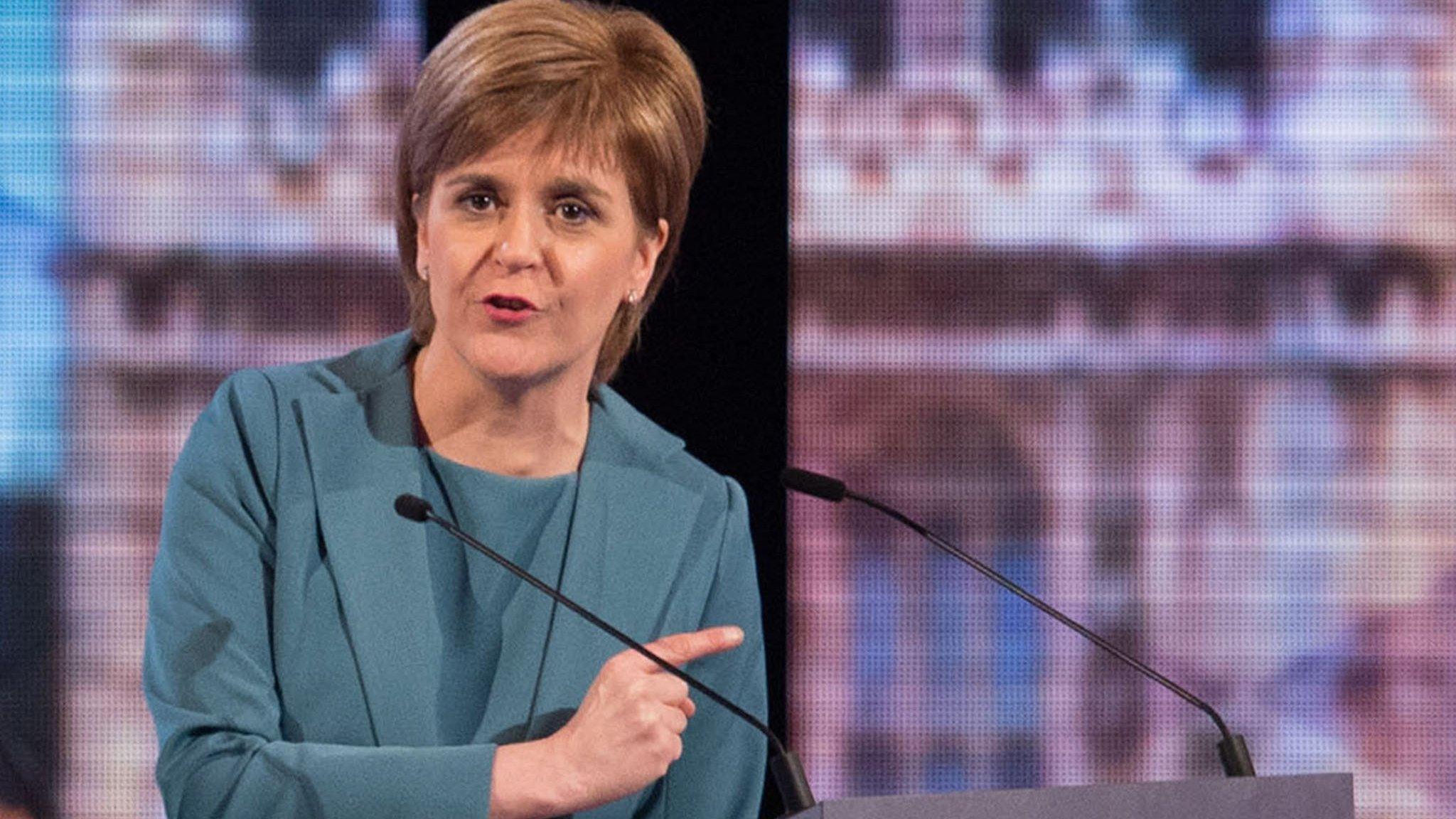The all-powerful Nicola Sturgeon's busy day of debates
- Published
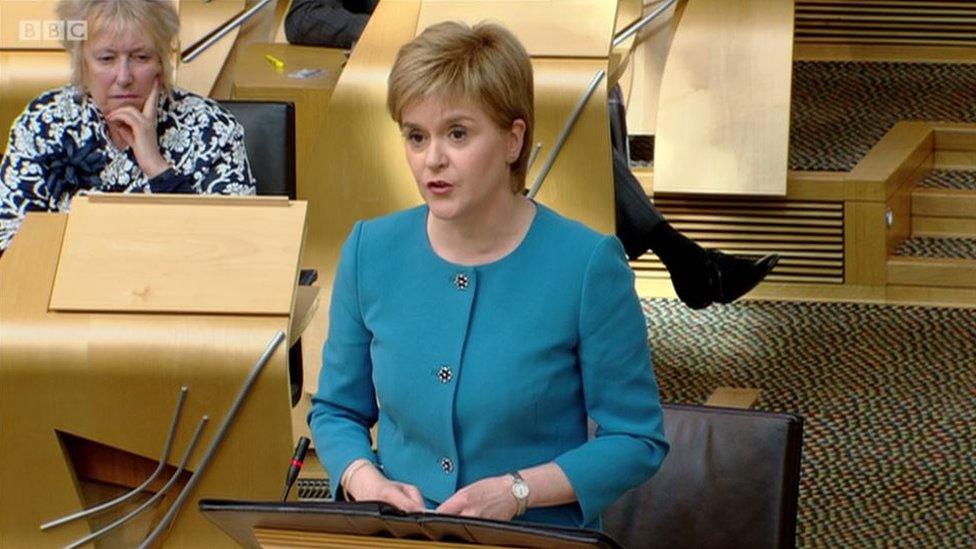
Nicola Sturgeon was recently named the 50th most powerful woman in the world by Forbes magazine
There she stood, the 50th most powerful woman in the world. Second, indeed, in the UK. Only outranked by Her Majesty the Queen.
And did Nicola Sturgeon display this might ostentatiously? Or did she feel the burden, did she strut and fret her hour upon the stage? (Or, more precisely, her 45 minutes, under the recently extended FMQs.)
Friends, she did not. Indeed, challenged by Kezia Dugdale about the power list, Ms Sturgeon replied to the effect that her Labour counterpart must be paying more attention to these things than she did.
Aye, as they say in Nicola Sturgeon's constituency, right. Ms Dugdale certainly seemed to feel that this was an example of First Ministerial litotes. At least, she sat right sair astonished, gesturing ferociously in a fashion which suggested she felt the FM was at it.
To be fair, Ms Sturgeon was smiling broadly as she issued this disavowal of interest in the list, produced by Forbes magazine. (I'll bet she can name her cited chums in order, from Angela Merkel down.)
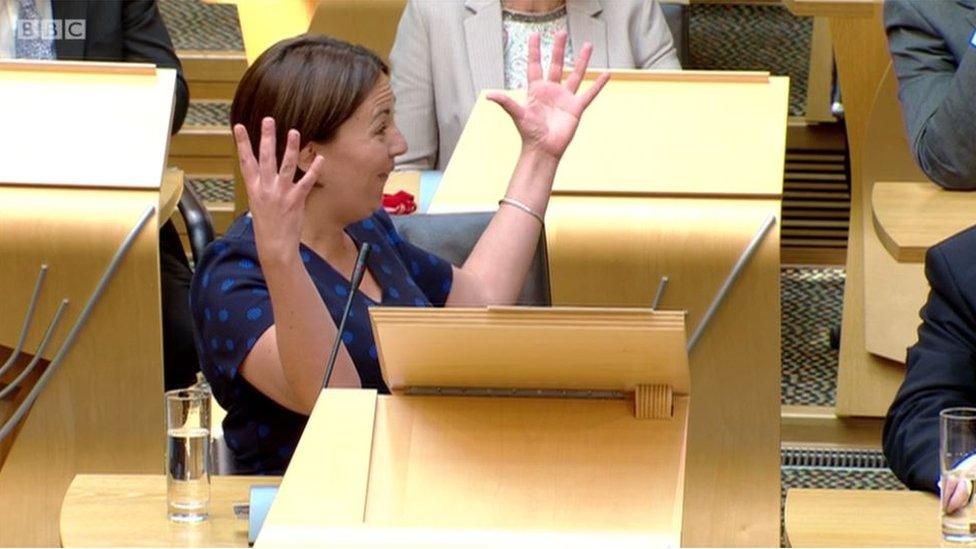
Ms Dugdale clashed with Ms Sturgeon in the chamber, before heading off to support her in an EU debate
As I write, the 50th most powerful woman in the world is en route to London to take part in a televised debate anent the EU referendum.
On the panel alongside her will be four other women - Andrea Leadsom, Gisela Stuart, Angela Eagle and Amber Rudd.
And where do they rank in the power list? Nowhere - as Ms Dugdale, an eager student of such things, could tell you, should you inquire.
Still, if Ms Sturgeon tires of engaging with the palpably less powerful among her own gender, she could turn her attention to the sole male participant. One Alexander Boris de Pfeffel Johnson.
'What referendum?'
Incidentally, Ms Dugdale is also on her way to London to join the happy throng in the spin room, where the debate will be analysed. The Labour leader will be in the unusual position of supporting Ms Sturgeon, inasmuch as they are both backing Remain.
(Or will she? Mayhap intuition will kick in and she will sing: "So, you're the 50th most powerful woman in the world? That don't impress me much..." No, I expect not.)
The self-same referendum posed a tiny problem during Holyrood questions. Governments across these isles are now in purdah. Which means they have to say: "Referendum? What referendum?"
That's because the rules declare they can't devote public money or public effort to the campaign, in the period immediately prior to polling. Answering questions at Holyrood, Ms Sturgeon is appearing as First Minister, supported by civil servants, and thus prone to purdah.
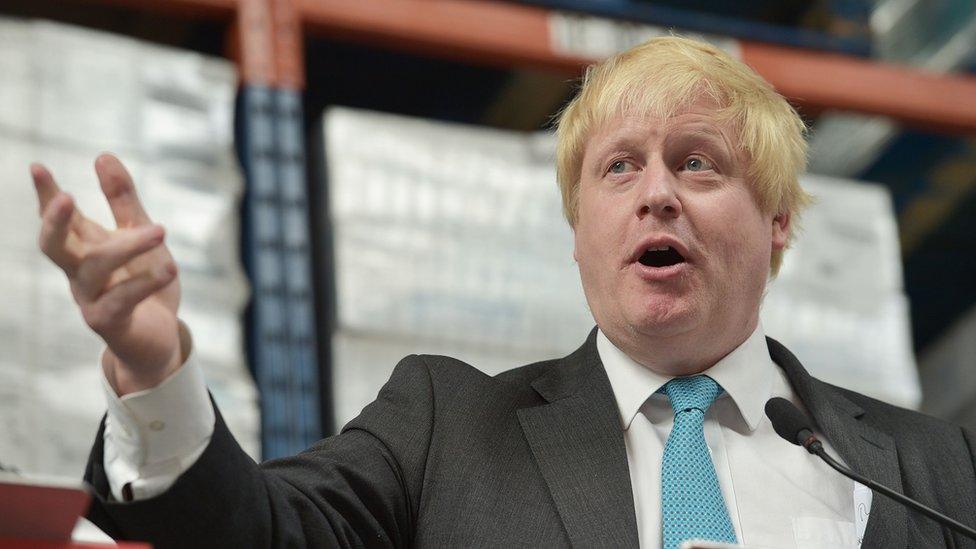
Boris Johnson is set to tangle with Nicola Sturgeon in an EU debate
But hey, listen, we're talking the 50th most powerful woman in the world here. And so Ms Sturgeon contrived, deftly, to make two relatively oblique comments about tonight's debate, including the suggestion that she did not want to see Boris Johnson "rip up workers' rights". No doubt Mr Johnson will have his say tonight.
However, there are apparently limits to Ms Sturgeon's potency. She is not, she told the chamber, a bridge engineer. Cue astonishment at this disavowal - except among her own backbenchers who believe she tends to walk on water, rather than bridge it.
But Ms Sturgeon was not finished. She had been answering questions about the new Queensferry Crossing when she made the shock confession about her lack of engineering expertise. She didn't, she told MSPs, construct bridges - "other than the ones I build across this chamber all the time".
Education exchanges
In which mode, she urged Labour to work with her in tackling the attainment gap in education. The signs are not good. Ms Dugdale accused her of worsening the gap, in that fewer pupils from disadvantaged backgrounds were making it to university.
No, Ms Sturgeon patiently explained, that figure only covers those aged 18. Including all age groups produced a rather more favourable outcome - although still very far from perfect.
Earlier, there had been a similar statistical trade between Ms Sturgeon and Ruth Davidson, the Scottish Conservative leader.
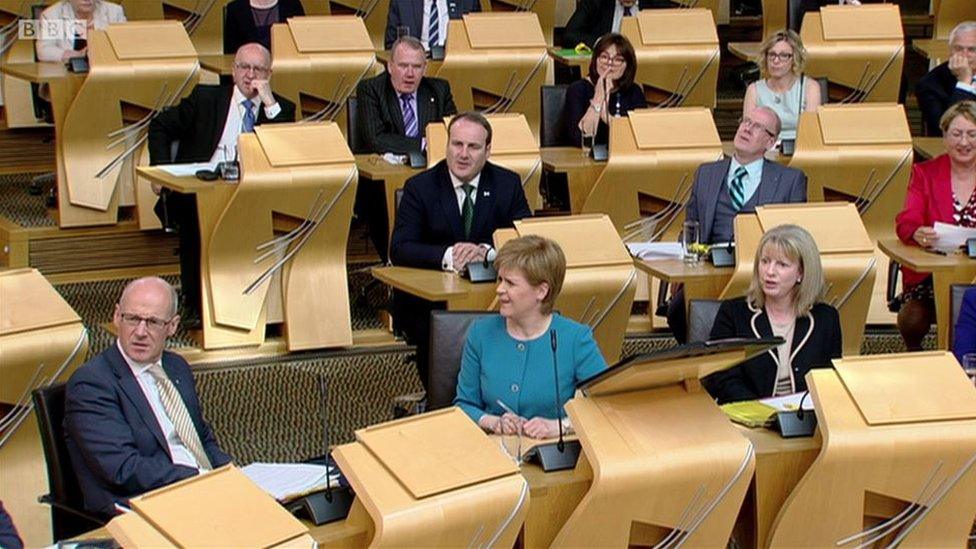
Ms Sturgeon and her government were displeased with Iain Gray's stats about girls studying science
These exchanges were, mostly, measured. Combative, yet contained. There was a decidedly sharper edge when Ms Sturgeon confronted Labour's Iain Gray.
He had produced stats suggesting a decline in the number of girls studying science subjects. Ms Sturgeon said he had not compared like with like, neglecting the numbers now taking revised Highers.
It was, she said, "a disgrace".
Unabashed by this Delta Minus mark from the Heidie, Mr Gray suggested they might trade figures another time. Ms Sturgeon considered this offer for a nanosecond - before concluding that, actually, on balance, if it was OK with him, she would rather talk figures right now. Which she did. Vigorously.
In vain did Mr Gray seek to deflect the attack by praising the FM for appointing Professor Sheila Rowan of Glasgow University as the Scottish Government's new chief scientific adviser.
OK, just give me a second, and I'll tell you her rank on the Forbes list.
- Published9 June 2016
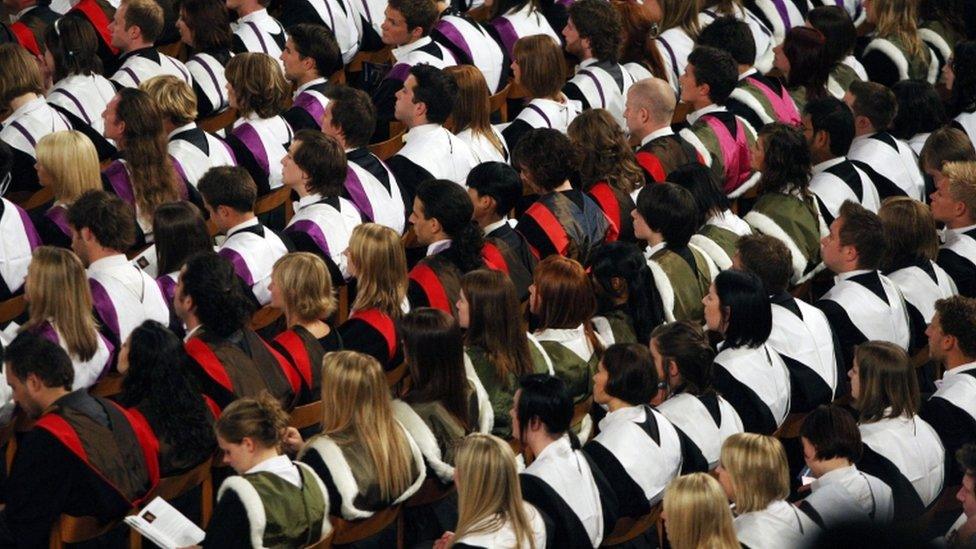
- Published6 June 2016
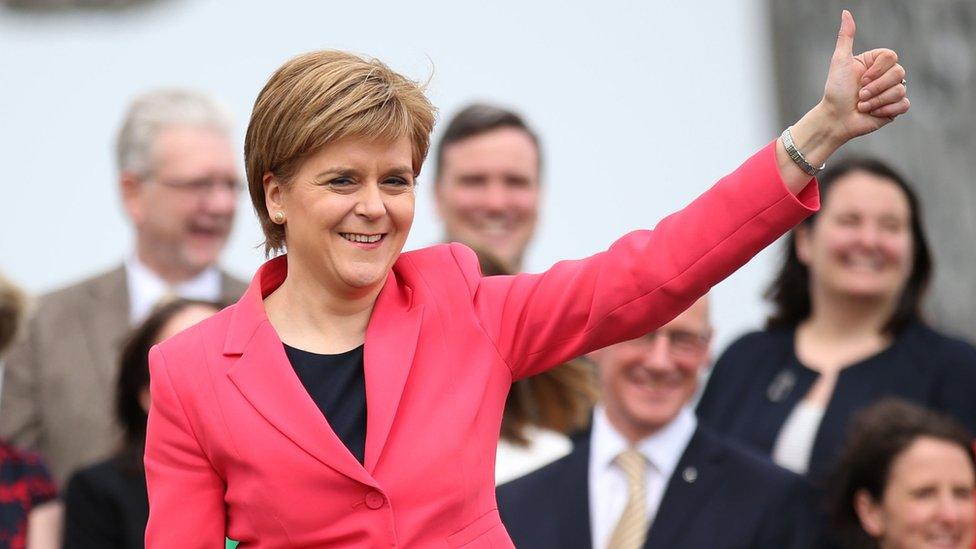
- Published4 June 2016
